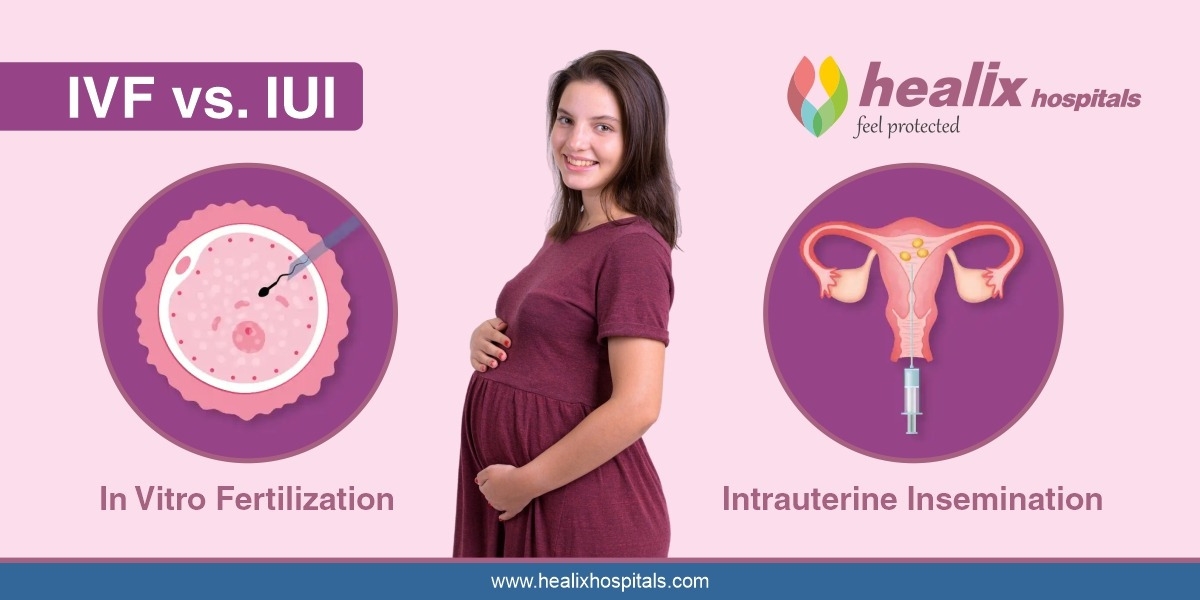

When couples struggle with infertility, they often turn to assisted reproductive technology (ART) to help them conceive. Two of the most common treatments are IVF vs. IUI. But how do you decide which one is right for you? Understanding the differences between IVF and IUI, their success rates, costs, and suitability for different fertility issues can help you make an informed decision. In this article, we’ll explore both procedures in detail and provide insights to guide your choice.
Understanding IVF and IUI: A Brief Overview
What is Intrauterine Insemination (IUI)?
IUI, or intrauterine insemination, is a fertility treatment where sperm is directly placed into a woman’s uterus during ovulation. This process increases the chances of fertilization by bringing the sperm closer to the egg. IUI is often recommended for couples with mild infertility issues, such as:
- Unexplained infertility
- Mild male factor infertility (low sperm count or motility)
- Cervical mucus issues
- Ovulation disorders
- Couples who prefer a non-invasive treatment first
What is In Vitro Fertilization (IVF)?
IVF, or in vitro fertilization, is a more advanced fertility treatment. It involves stimulating the ovaries to produce multiple eggs, retrieving those eggs, fertilizing them in a laboratory, and transferring the best embryo(s) into the uterus. IVF is often recommended for:
- Severe male factor infertility
- Blocked or damaged fallopian tubes
- Endometriosis-related infertility
- Women with advanced maternal age
- Couples with repeated IUI failures
- Individuals requiring genetic screening
Differences Between IVF and IUI

To make an informed decision, let’s compare IVF vs. IUI across key factors:
| Factors | IUI | IVF |
| Procedure |
Sperm is inserted into the uterus
|
Eggs are retrieved, fertilized in a lab, and implanted |
|
Sucess Rates
|
10-20% per cycle | 40-60% per cycle (varies by age) |
| Invasiveness | Minimal | Highly invasive |
| Time Required | Quick, less than an hour | Weeks to months per cycle |
| Best for | Mild infertility cases |
Serve Infertility or repeated IUI failures
|
| Genetic Testing | Not available | Available for embryo screening |
| Risk of Multiple Births | Low |
Moderate to high
|
| Medication Requirement | Minimal | Intensive hormone therapy |
Success Rates of IVF and IUI
One of the most crucial aspects to consider is the success rates of IVF and IUI. According to research:
- IUI success rates range from 10-20% per cycle, depending on the woman’s age and fertility condition.
- IVF success rates vary between 40-60% per cycle, with higher success among younger women.
- IVF success rates increase with preimplantation genetic testing (PGT) to identify the healthiest embryos.
- IUI success can be boosted by combining it with fertility medications like Clomid or gonadotropins.
While IUI may work for some couples, those who fail after multiple cycles may need to transition to IVF for a higher chance of conception.
Choosing the Right Fertility Treatment
When to Choose IUI
IUI may be a suitable choice if:
- You have mild male infertility (slightly low sperm count or motility).
- You experience unexplained infertility and are trying for the first time.
- You are under 35 years old with a good ovarian reserve.
- You want a less invasive and more affordable option initially.
- You are trying to conceive using donor sperm.
When to Choose IVF
IVF is the recommended path if:
- You have blocked fallopian tubes or severe endometriosis.
- You are over 35 years old and face difficulty conceiving.
- You have undergone multiple unsuccessful IUI cycles.
- You require genetic screening to avoid hereditary diseases.
- You have conditions like PCOS or diminished ovarian reserve, requiring intensive treatment.
- You are pursuing fertility preservation (egg freezing).
IVF and IUI Cost Comparison
The financial aspect is another significant factor in choosing IVF vs. IUI.
- IUI cost: Approx 20,000/- per cycle, depending on medication and clinic.
- IVF cost: Approx 1,00,000/- per cycle, which includes medication, lab procedures, and embryo transfer.
- Additional costs for genetic screening, embryo freezing, and donor eggs or sperm can increase the total expense.
While IUI is more affordable, its lower success rate may mean multiple cycles, potentially making it costlier in the long run compared to IVF.
Conclusion
Both IVF and IUI are effective fertility treatments, but their suitability depends on individual circumstances. If you have mild infertility and are looking for a less invasive and more affordable treatment, IUI may be the right choice. However, if you face complex fertility challenges or have had multiple failed IUI attempts, IVF offers a higher success rate.
At Healix Hospitals, we specialize in providing personalized fertility solutions. Our team of experts is here to guide you through your journey to parenthood. Book a consultation today to explore the best treatment option for you.
Frequently Asked Questions (FAQs)
1. Is IUI or IVF more successful?
IVF generally has higher success rates (40-60%) compared to IUI (10-20%), especially for women over 35 or those with severe infertility.
2. How many cycles of IUI should I try before moving to IVF?
Doctors usually recommend 3-6 cycles of IUI before considering IVF, depending on your age and medical history.
3. Does IVF guarantee pregnancy?
While IVF has higher success rates, it does not guarantee pregnancy. Factors like age, embryo quality, and overall health impact the outcome.
4. Is IVF painful compared to IUI?
IVF is more invasive and involves injections, egg retrieval, and embryo transfer, whereas IUI is a simpler and less painful procedure.
5. What is the best age for IVF or IUI?
The best age for IUI is under 35, while IVF is most successful for women under 40, although it can still work for older women with healthy eggs.
For expert advice on IVF vs. IUI, visit Healix Hospitals today!